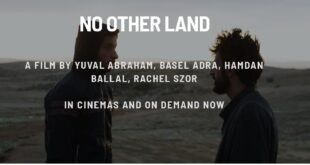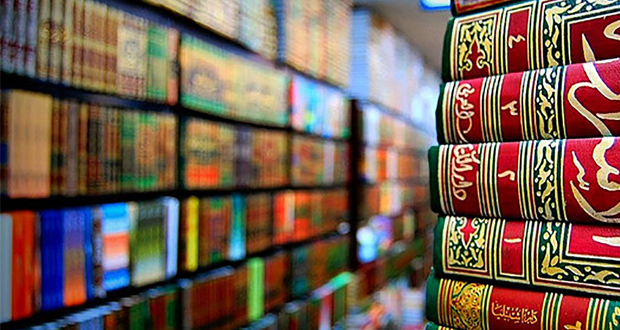The following is an English translation of the author’s interview in Persian which appeared in the credible quarterly “Tarjoman-e Wahy Journal” of the winter 2002, no, 10.
The latest English translation of the Qur’an in a poetic style by Dr. Fazlollah Nikayin, was published in Illinois, U.S. (2000). Since some aspects of the work of this Iranian translator deserve to be presented and surveyed, we publish an interview with him in this issue of our monthly. In order to familiarize
our readers with the work of this translator, first, we quote some samples of this poetic translation from Surah Fajr. Samples of the translation of the Verses 6-10, Surah Fajr
6 Have you not noted what your Lord, Did unto Aad,
7 Of Iram, with their buildings proud,
8 The likes of which were never raised, Throughout the world?
9 And to Thamood, Who rocky mountains hewed?
10 And unto Pharaoh, Lord of Multitude?
Before entering into the discussion of the Qur’an translation and your poetic, English translation, I want to know your idea concerning the “non-translatability” of the world literary masterpieces and holy texts in general.
In the Name of Allah, the Beneficent, the Merciful. First, I would like to thank you and the dear staff of the valuable journal of Tarjoman-e Wahy. Indeed, the answer to this question depends on the definition of translation. Some believe that the world literary
masterpieces are non-translatable, but we should consider their definition of translation. If by translation they mean re-creating a work in another language, obviously it will be impossible to do. For instance, re-creating a work of Shakespeare, Hafiz, Goethe or Rumi in other languages means that, for example, Hafiz should grow up in the same conditions and circumstances in England, or Shakespeare become surprisingly a Persian author or that they grow up in a supposedly bilingual and bicultural environment. These attitudes toward translation are not valid and scientifically they have no relationship with translation. Most of the world literary and poetic works have been translated in other languages as well as the Holy Books such as the Latin translation of the Bible known as “The Seventy Translators”. One may notice that there are various translations of such works: poor, average, good or excellent. In translation, one should not expect anything more than a good or excellent translation. Thus, my answer is ‘Yes’. According to the fact that re-creating is impossible, it is possible to have a good translation of any works into any language.
A good translation of a work into another language is that in which the translator creates a good workthrough conveying the exact meanings along with employing all the capabilities, possibilities, elegant and novel points in the target language so that the native speaker could feel most of the beauty, eloquence, and the artistic subtleties hidden in the original text when reading it. The more the translator comes close to this aim, the more similar his translation will be to the original in terms of the literary and artistic aspects. Concerning the translation of great literary and poetical works, one cannot imagine anything but going through this process. Unless someone says that, in his opinion, translation means re-creating; this is certainly nonsensical! As you know, Fitzgerald, the well-known English poet, translated approximately some one hundred Rubaiyat (quatrains) of Omar Khayyam in a free manner which is not related to our present discussion. But it should be mentioned Based on what you said, rendering a good translation of the Qur’an is extremely difficult, isn’t it?
Undoubtedly, it is. As an example, the Qur’an has been translated into
Persian for the last centuries. Some of these translations are literal ones which are similar to an elementaryschool glossary notebook and some are fairly good ones, translated during the last forty years. Of course, the clergymen, merchants, and scholars who preached Islam as far as the Philippines, Indonesia, and the islands of the Caribbean did translate and explain the Holy Verses and the Qur’anic Concepts for the people of those lands as much as they could. Generally peaking, among the people who do not know Arabic, one could do nothing but translate. May these great men be rewarded forever
Please Click here to read the complete Article
Post Disclaimer | Support Us
Support Us
The sailanmuslim.com web site entirely supported by individual donors and well wishers. If you regularly visit this site and wish to show your appreciation, or if you wish to see further development of sailanmuslim.com, please donate us
IMPORTANT : All content hosted on sailanmuslim.com is solely for non-commercial purposes and with the permission of original copyright holders. Any other use of the hosted content, such as for financial gain, requires express approval from the copyright owners.
 Sri lanka Muslims Web Portal Sri Lanka Muslims News Center
Sri lanka Muslims Web Portal Sri Lanka Muslims News Center
 Donate
Donate



Assalamu Alaikum
The purpose of Quran is to guide the people. It has to be translated into simple and understanding words of each language, if to be translated otherwise we should learn Arabic and try to understand the purpose of Revelation Insha Allah. Afkham you are correct in your assumption Allah knows best.
Furthermore, this seems to be the work of the Shi’a; another attempt at spreading misguidance & corruption amongst the Muslims. There is another such attempt by the Jews called “The True Furqan”. We must be aware of such publications & avoid them and educate the masses about these materials of misguidance.
You can see how this poetic translation has distorted the meanings of some of these verses. Here is a traditional translation of the aforementioned verses of Surah al-Fajr
6. Did you (O Muhammad) not see (thought) how your Lord dealt with ‘Ad (people)?
7. Who were very tall like lofty pillars,
8. The like of which were not created in the land?
9. And (with) Thamûd (people), who cut (hewed) out rocks in the valley (to make dwellings)?
10. And (with) Fir’aun (Pharaoh), who had pegs (who used to torture men by binding them to pegs)?
Now compare it with the poetic translation given below and see how the meanings have been distorted or how parts have been omitted.
6 Have you not noted what your Lord, Did unto Aad,
7 Of Iram, with their buildings proud,
8 The likes of which were never raised, Throughout the world?
9 And to Thamood, Who rocky mountains hewed?
10 And unto Pharaoh, Lord of Multitude?
This seems like a plot to misguide the Muslim ummah.
Isn’t the translation or, Irama zaathil Imaadh, “Of Iram, who were very tall like pillars” ? Isn’t there an error in this poetic translation given as an example.
Perhaps, in trying to make the translated verses rhyme, the true meaning will get distorted.